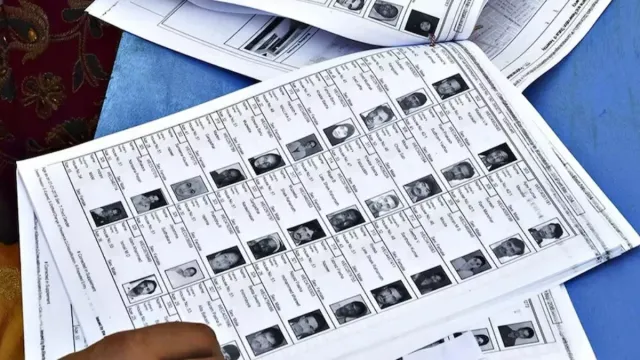- By Priyanka Koul
- Tue, 28 Oct 2025 08:35 AM (IST)
- Source:JND
Following the completion of the Special Intensive Revision (SIR) of voter lists in Bihar, the Election Commission on Monday announced the launch of the second phase of the SIR across 12 states and Union Territories, including Uttar Pradesh, West Bengal, Madhya Pradesh, and Chhattisgarh.
The SIR work in these regions will commence on Tuesday, October 28, and continue until February 7, 2026.
This phase covers four states excluding Assam where Assembly elections are scheduled to take place in early 2026. Due to the ongoing citizenship verification process in Assam under the supervision of the Supreme Court, the Commission has decided to conduct the SIR there at a later stage. However, the verification process is reportedly in its final phase.
The Election Commission stated that, based on the experience gained from the SIR conducted in Bihar, several procedural improvements have been made for the second phase. These include modifications to how certain verification forms and documents are processed, aiming to provide greater convenience to voters.
ALSO READ: Pune Weather: Light To Moderate Rain Disrupts Traffic; IMD Issues Yellow Alert Till October 28
Around 51 crore voters in 12 states
The 12 states where the second phase of SIR will be conducted collectively have a voter base of approximately 510 million (51 crore). Among them, Uttar Pradesh has the highest number of voters at 154.4 million, followed by West Bengal (76.6 million), Tamil Nadu (64.1 million), Madhya Pradesh (57.4 million), Rajasthan (54.8 million), and Chhattisgarh (21.2 million).
Chief Election Commissioner Gyanesh Kumar clarified that with immediate effect, all changes to the voter lists in these 12 states and Union Territories are temporarily frozen. This means no new names can be added or removed during the SIR period.
During the process, each voter will receive a unique form containing their existing details such as address and photograph. If a voter has relocated, they can update the new address accordingly. The Commission has also advised voters to affix a color photograph on their form to ensure better clarity on their voter identity cards.
THESE States, Union Territories ARE Covered In SIR
The SIR will be conducted in the following 12 states and Union Territories:
Uttar Pradesh, West Bengal, Madhya Pradesh, Chhattisgarh, Tamil Nadu, Rajasthan, Kerala, Gujarat, Goa, Puducherry, Lakshadweep, and Andaman & Nicobar Islands.
Among these, West Bengal, Tamil Nadu, Kerala, and Puducherry will go to polls in early 2026, while Uttar Pradesh, Gujarat, and Goa are scheduled for Assembly elections in 2027.
Check SIR Schedule
-> Printing of counting sheets and BLO training: October 28 – November 3
-> Door-to-door revision work: November 4 – December 4
-> Publication of draft voter list: December 9
-> Period for claims and objections: December 9 – January 8, 2026
-> Scrutiny, hearing, and verification: December 9 – January 31, 2026
-> Publication of final voter list: February 7, 2026
SIR conducted eight times so far
This is not the first time a Special Intensive Revision of voter lists has been carried out in India. The exercise has been conducted eight times between 1951 and 2004, with the last one held 21 years ago, between 2002 and 2004, in most states.
According to the Commission, the latest SIR was initiated in response to concerns repeatedly raised by political parties over irregularities in the voter lists. The main objective is to ensure accuracy, transparency, and credibility in the electoral rolls.
Why is SIR Important In Upcoming Elections?
The Election Commission has explained several reasons behind the necessity of SIR:
1. Rapid urbanization and migration have led to large-scale displacement, resulting in outdated voter addresses.
2. Many individuals have their names registered in more than one location, causing duplication.
3. Names of deceased voters often remain on the rolls, distorting the data.
4. In some regions, illegal infiltration has led to fraudulent voter registrations.
The SIR aims to identify and correct all such discrepancies, ensuring a clean and authentic voter database.

